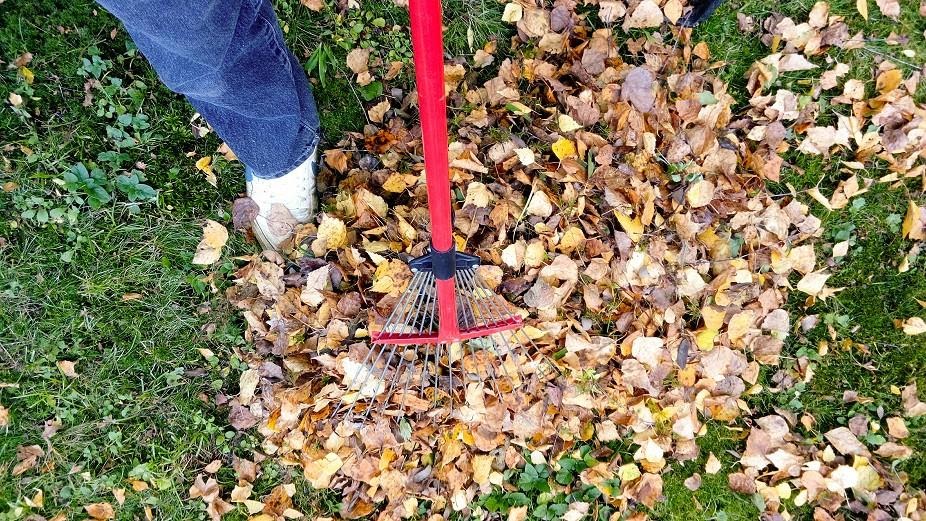Next to pulling weeds, raking leaves is probably our least favorite garden task. But wait! The fallen leaves can actually be a great benefit to your lawn. Instead of raking, bagging and disposing of the leaves, use a mulching mower and turn the leaves into compost.

Benefits of Mulching Leaves – What’s not to Love?
- Earthworms and microorganisms will help break down and decompose the leaves and turn them into organic matter
- This organic matter will naturally feed the grass roots, and if done each year, will dramatically decrease the weeds in the lawn
- The earthworm activity will help to aerate the soil which helps water, oxygen and nutrients to get to the grass roots faster
- Fallen leaves are put to work instead of put in the landfill
How to Mulch Leaves
- A mulching mower has a high deck and special blades which chop the leaves into fine confetti-like pieces. If you use a lawn service, ask them to use a mulching mower and not to bag the leaves.
- The best time to start using the mulching mower is when you can still see grass blades poking out of the fallen leaves. If the leaf layer is very thick and mowing is difficult, you may need to do some raking and bagging. You can still shred the overflow leaves and add to vegetable gardens and compost piles.
Do Remove Leaves from Evergreen Shrubs
- Leaves that have fallen on evergreen shrubs, such as yews, hollies, boxwood and azaleas, should be removed gently by hand or with a child’s rake. When leaves build up on and between evergreen branches they prevent air and light circulation. Wet leaves can also contribute to fungus problems.
